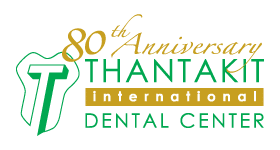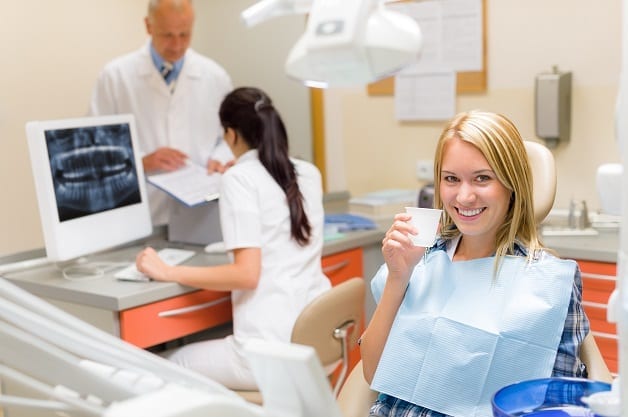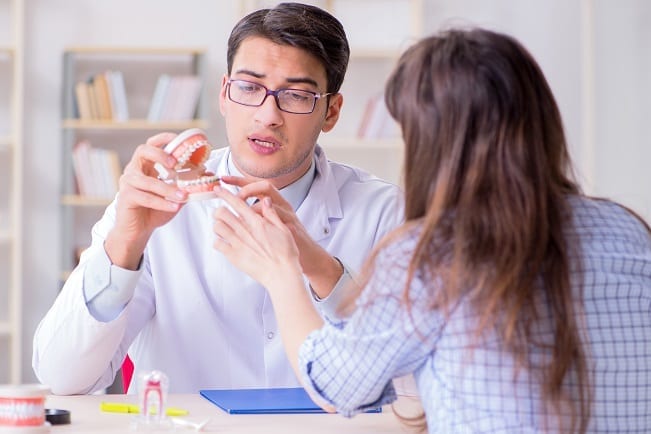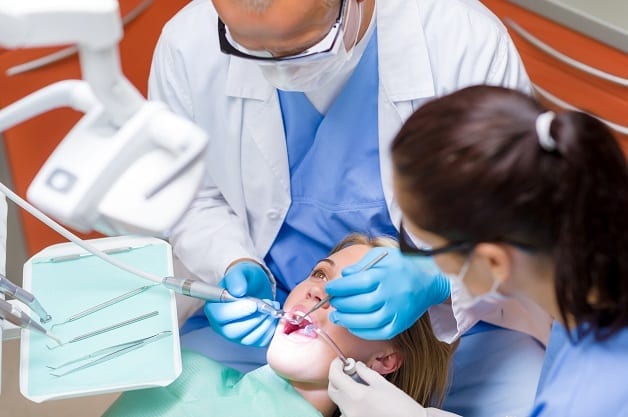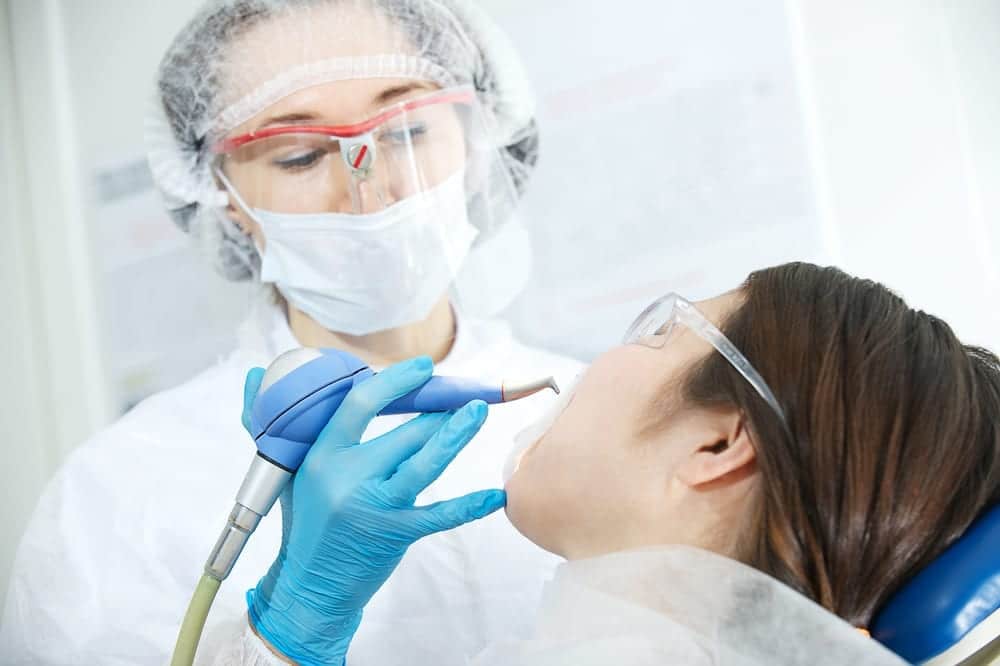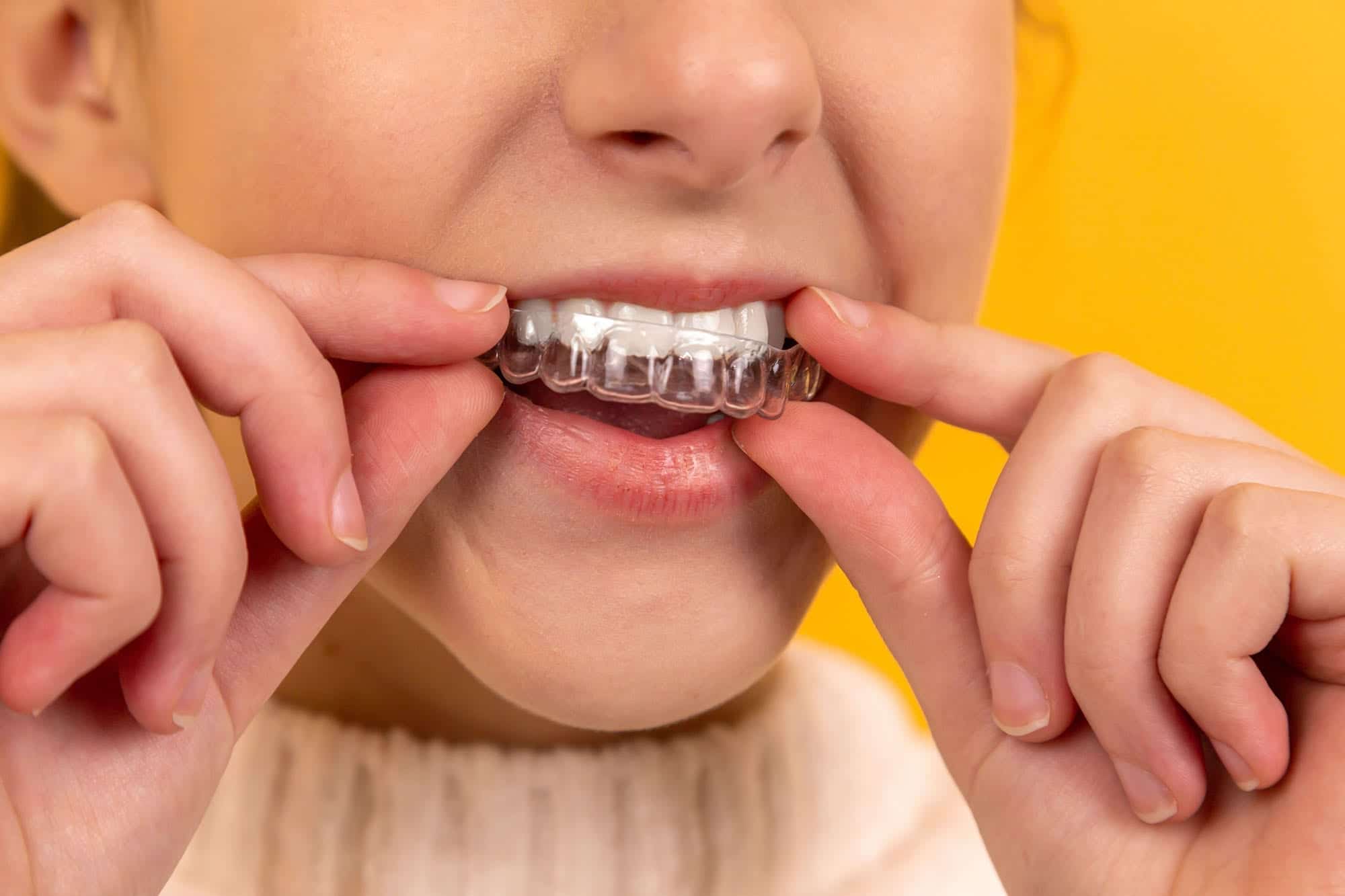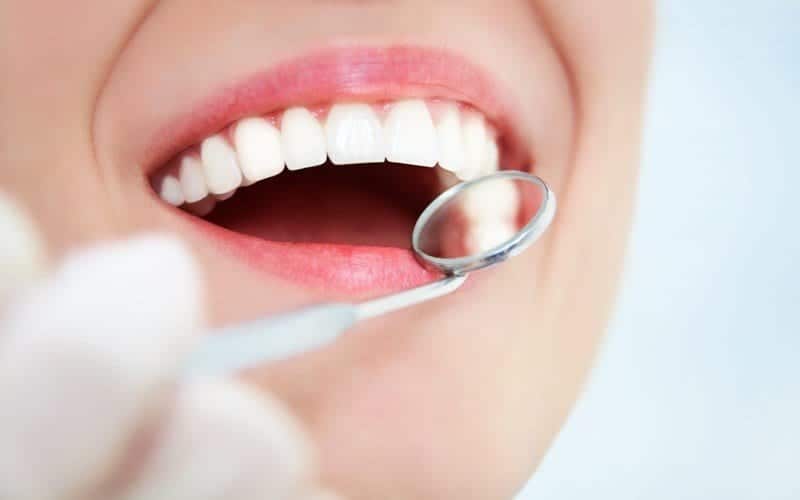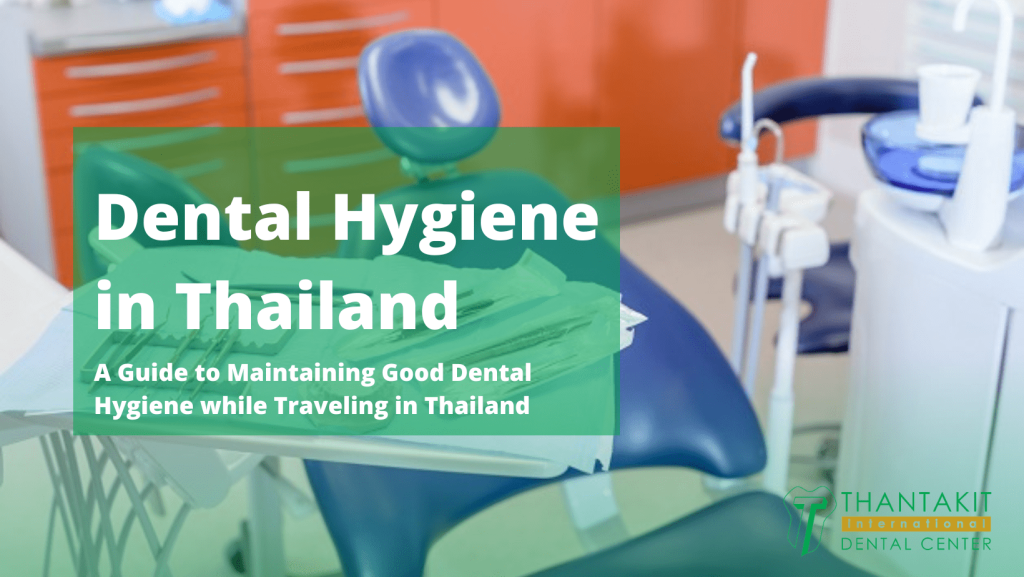Dental hygiene in Thailand: A guide to maintaining good dental hygiene while traveling in Thailand, including information on where to buy dental products and how to find a good dentist.
Should you bother availing professional dental hygiene services in Thailand? Shouldn’t getting your own toothbrush and toothpaste then brushing twice daily be enough? Usually, when people go to Thailand to get some dentistry work done, it’s something major.
It usually involves things like regular tooth extraction, wisdom tooth extraction, or even dental implantation. If they’re going to do some cleaning, it’s usually scaling and deep cleaning to prevent the progression of periodontal disease.
Is it worth it to avail of affordable professional cleaning or prophylaxis for the sake of getting dental hygiene in Thailand? Or should you just use teeth whitening instead?
Page Contents
The Basics of Oral Hygiene in Thailand
Although oral hygiene does involve dentist visits even if you’re traveling elsewhere for business and/or pleasure (like in the case of Thailand), you should have a firm grip on the basics of dental and oral upkeep back at home.
Oral hygiene is the habit of keeping your mouth healthy and clean. You’re supposed to do it whether you’re at home or at work as well as away on some sort of trip.
In order to keep all your teeth in the future and not need dentures, it’s important to always keep your mouth, tongue, gums, and teeth healthy, clean, and germ-free.
You should also do this type of maintenance every day as a daily regimen or routine. It’s crucial that you do this regularly to prevent tooth decay and gum disease.
This guide explains more about good daily oral hygiene when traveling to places like Thailand. You can also avail of affordable in-office dental cleaning or prophylaxis in Thailand to get multiple months’ worth of oral cleaning done in one visit.
After all, Thailand is the Land of Smiles, and its dental tourism is quite superb to say the least. Even if you’re not getting major work done, you can go to dental centers like Thantakit for a dental checkup.
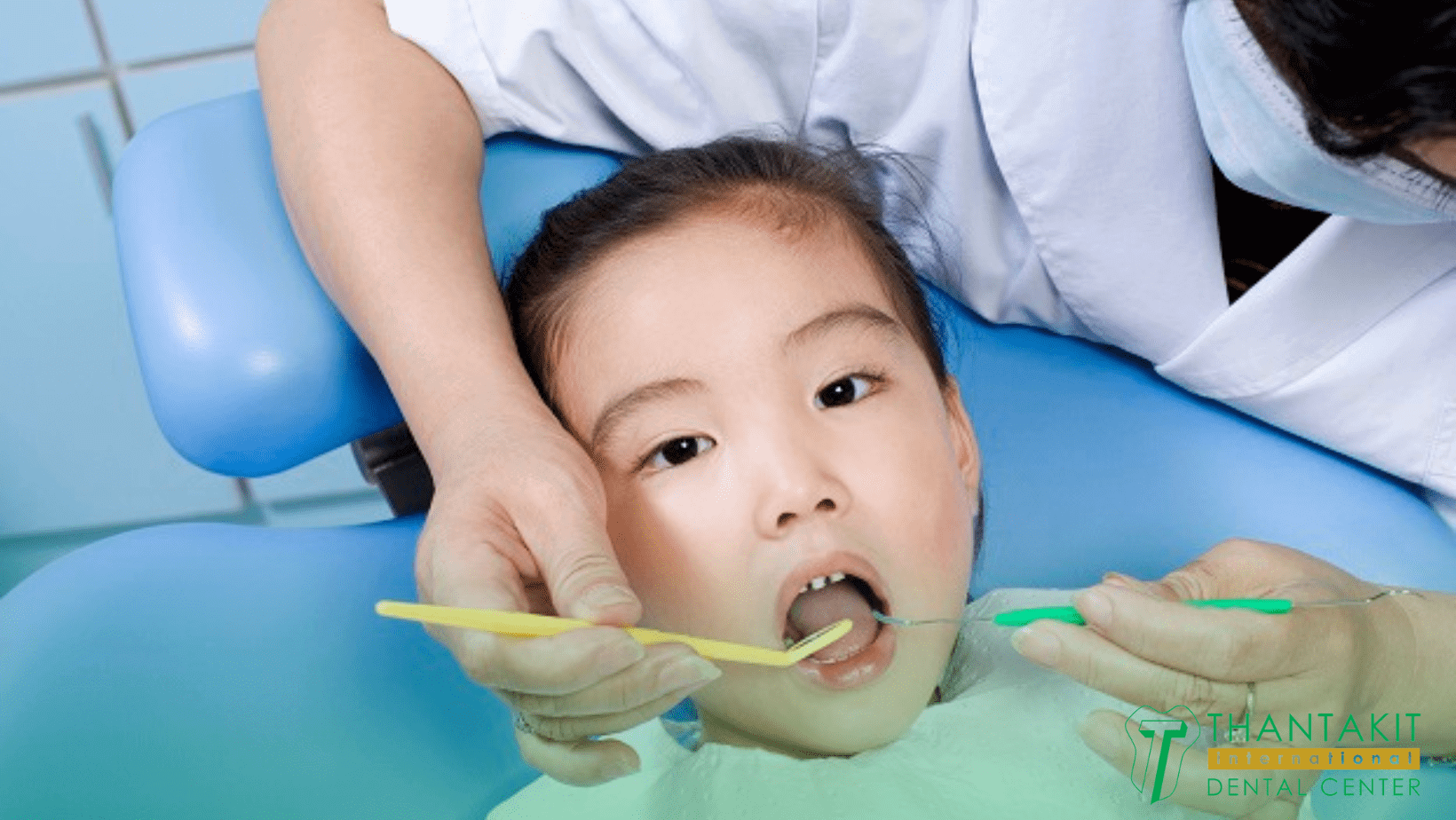
Recommended Oral Hygiene Routine in Thailand
When you’re traveling in Thailand, you should bring with you not only your clothes, international credit cards, plane ticket, and passport but also your oral hygiene kit.
Hopefully, your oral hygiene routine has already been established back home before establishing your dental hygiene in Thailand. You should already know these hygiene basics by now, but just in case you don’t, or you’ve missed something, here’s what you should do.
-
Brush Your Teeth Twice a Day: Brush your teeth after every meal or at least after breakfast/lunch and after dinner. Or during the day and during the night before you sleep. Do it even when you’re in another country, like Thailand. Don’t neglect this routine.
As soon as you get back to the hotel after having a meal at a restaurant or by room service, brush your teeth to remove the dirt, food remnants, and bacteria in your mouth. They can turn to plaque that produces acid that destroys your teeth.
Brush your teeth gently but rinse thoroughly, the same way you’d wash your hair. Or use an electric toothbrush so as not to brush too hard. Brush your tongue too.
You should also use fluoride toothpaste since fluoride helps strengthen the outer shell or enamel of your teeth. This prevents tooth decay, fights against germs, and provides a protective barrier on your teeth’s enamel.
-
Floss Once Daily: Floss at least once a day. It’s as important as teeth brushing because it catches the bits of food stuck between teeth that your toothbrush can miss. It assists in stimulating your gums as well as reduces plaque.
Proper brushing involves scraping not only the crevasses of your teeth but also the surface of their enamel. You can find time while in Thailand to floss, right?
Move the floss across every tooth and scrape up any forming film or plaque on its surface as you go between the lines of your teeth as well. Flossing once a day helps you clean up missing 40 percent of your teeth that’s missed from brushing alone.
It’s because brushing the teeth only cleans about 60 to 65 percent of them. Flossing also catches and removes bacteria in between the teeth.
Just don’t forget to use every individual bit of floss on every single tooth instead of using the same floss on every tooth because doing so only transfers the plaque and bacteria from one crevasse to another crevasse.
Use Mouthwash: If you’re going to rinse your mouth anyway after every tooth brushing and/or flossing session, you might as well do it with a proper mouth rinse. You can buy some at your local drug store or convenience store anyway.
If you forgot to get mouthwash when traveling to Thailand, you can always find some mouthwash in Thai drug stores or convenience stores as well.
Rinsing your mouth with mouthwash after brushing may assist in increasing the fluoride content of your teeth. By killing 99.9 percent of bacteria and adding a defensive layer of fluoride onto your teeth, you’ll greatly reduce your tooth decay risk.
Enjoy your travels in the Land of Smiles by rinsing with mouthwash after every meal and having a megawatt smile of your own (with fresh breath to boot).
You’re mostly killing leftover bacteria in your saliva and mouth that haven’t been cleaned away by brushing alone. Brushing, flossing, and mouthwash is the oral hygiene triumvirate.
Watch What You Eat in Thailand: The food in Thailand is more than fine. They’re delicious and nutritious. Some of the best dishes to eat in Thailand include guay teow, tom yum goong, tom kha gai, som tam, yam pla dook foo, yam talay, laab, pad phuk tong, pad thai, pak boong, and khao pad.
However, just because you’re not eating junk food and instead soulful food like thick noodle dishes, fried rice, and spicy salads, which doesn’t mean you should neglect oral hygiene!
To be more specific, brush regularly to avoid food remnants that could form into bacteria in your mouth. Also, eat less sugar and more teeth-beneficial foods.
When partaking in desserts like kluay kaek (Thai banana fritters) and roti kluay (Thai banana roti), your mouth could end up full of sugar that becomes acidic over time. An acidic mouth will erode enamel and cause cavities or holes to form on it.
While you’re in Thailand, cut down on your intake of coffees, teas, and fruits if you can’t avoid them.
Instead, eat more fibrous or raw fruits like pears, cucumbers, and apples to assist in teeth whitening. They also promote oral health by saliva stimulation, which should assist in the neutralization of mouth acids.
See Your Dentist At least Twice a Year: For regular hygiene purposes, you should see your dentist twice a year. When traveling to Thailand, feel free to try out their robust dental tourism packages or simply schedule an appointment at a dental center.
The average Thai dentist is highly qualified and comparable to their western counterparts. The best ones are even internationally trained and certified.
Here, you can get some general checkups. You can tell your Thai dentist info that your local dentist knows, like which teeth of yours are sensitive or had crowns/veneers installed.
Thantakit Dental Center dentists in particular have world-class certification and international training.
Checkups allow the dentist to spot cavities as they form then seal them. They can also cure any mouth or gum diseases you have early on before requiring more expensive operations like scaling and deep cleaning.
On top of that, you can also do cosmetic dentistry with them, such as teeth whitening or bleaching. In Thailand, they’re much more affordable than in western countries.
You also have the choice to buy dental strips from brands like Crest and Oral-B in Thai drugstores to do home-based dental whitening by yourself. Some dental clinics, centers, and hospitals sell these items themselves.
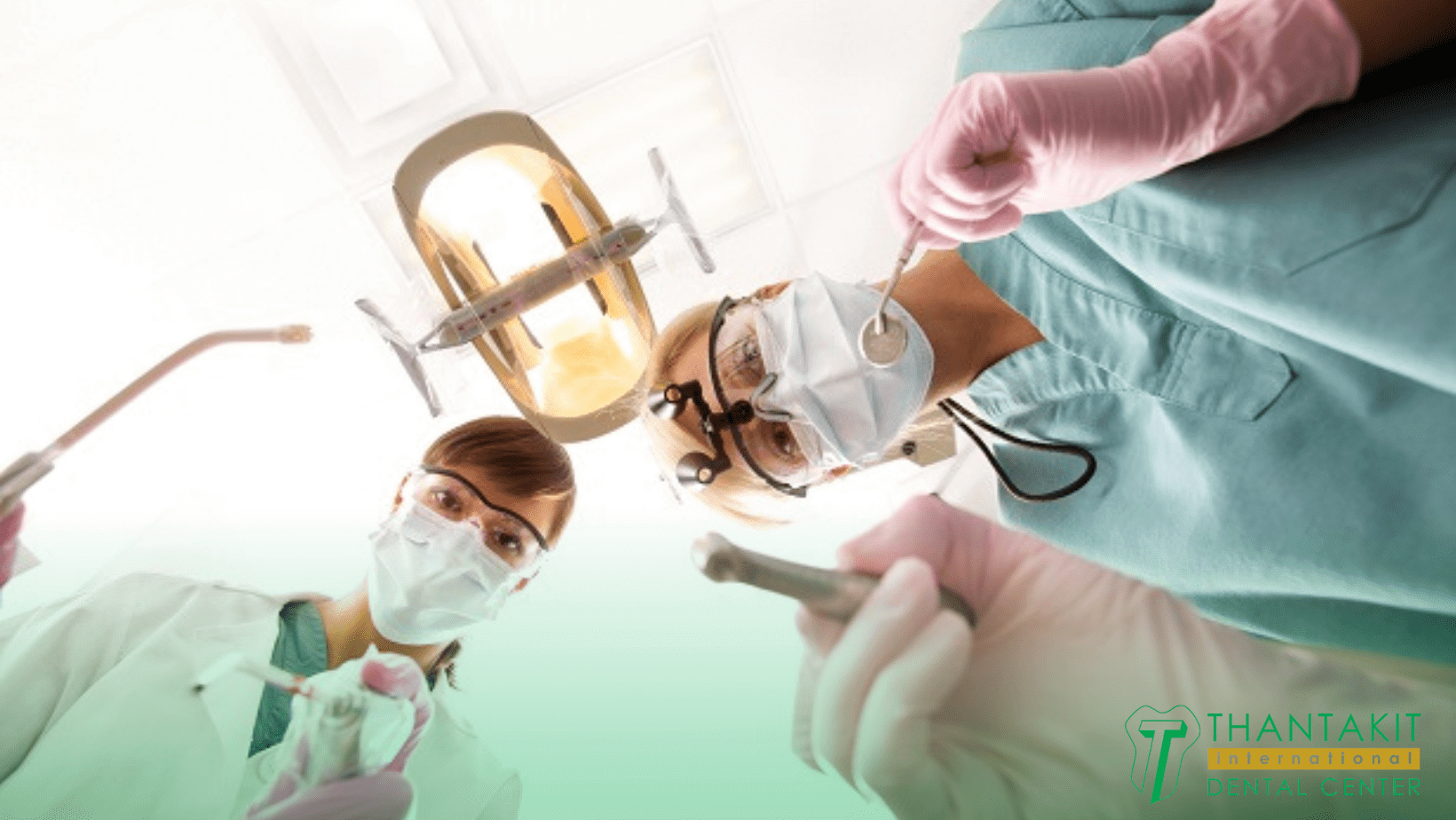
How About In-Office Dental Cleaning?
Only a few people look forward to teeth cleaning, viewing it as needless busy work. Some even have dentist phobia altogether. They particularly don’t like the strange noises, prodding, and occasional discomfort of the jaw.
However, take it from people who’ve overcome the dread. Regular dentist visits will pay dividends for your teeth’s future, particularly when it comes to avoiding the dreaded dentures.
You really shouldn’t be apprehensive about getting work done with a Thailand dentist who’s pound-for-pound as good as any other dentist in the world but even more cost-effective at it more often than not.
In particular, getting an in-office dental cleaning or prophylaxis at the clinic/center is painlessly simple for the most part.
Learn what happens during the procedure in order to allay your fears and stress. This should also allow you to look forward to the mint-fresh results when push comes to shove.
-
A Physical Examination: Teeth cleanings done by a Thailand dental hygienist or general practitioner are preceded by a physical exam of the mouth so that they’d know what they’re working with. Afterwards, the process can proceed.
The Thai dentist uses a mirror or a small mirror with a long handle to check around the gums and teeth for any sign of inflamed gums or gingivitis as well as other concerning conditions.
If a major issue is detected, the hygienist might call the dentist to make sure they can proceed, or another operation might take precedence instead.
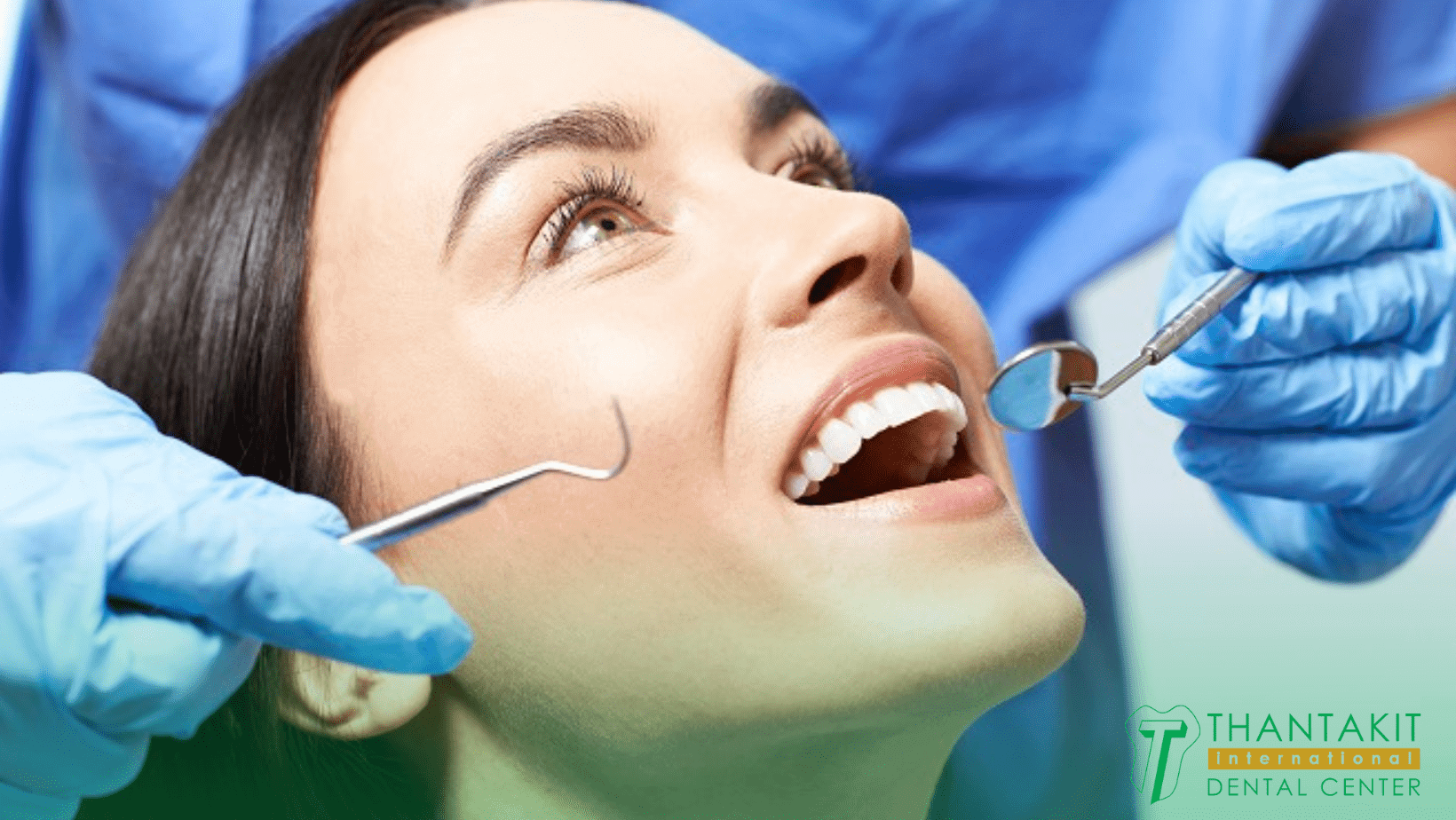
-
Removal of Tartar and Plaque: Brushing regularly is effective at removing plaque but not so much tartar or calculus (because it has calcium deposits hardened around it). A hygienist typically utilizes what’s known as a scaler for plaque and tartar removal around the gum line.
They’re also adept at scraping the calcium deposits (reserved for your teeth’s enamel but stolen by the plaque to turn itself into tartar) in between your teeth.
Every nook and cranny that’s hard to reach through your toothbrush, your hygienist or dentist will get to. You’ll hear some scraping sounds the whole while, but don’t worry. That’s normal.
The more tartar your mouth has, the more time they’ll need to scrape at it until it’s completely gone.
Flossing and brushing before and during the Thailand trip is still your best bet at avoiding the plaque from building up and hardening into cement-like tartar. After tartar has formed, you can only have it removed at a dental center like Thantakit.
You can also have it done at your local or family dentist as long as you can get a decent discount from your dental insurance. Otherwise, it’s actually cheaper to do it in Thailand even when you take into account the cost of a plane ticket.
-
Gritty Toothpaste Cleaning: Once your teeth are tartar-free, it’s time for the Thai dentist to brush them with a high-power electric toothbrush. It’s set to brush your teeth at just the right amount of force without going overboard with it.
Expect a grinding noise from the brush. Don’t be scared when you hear it. It’s supposed to deeply clean every crevasse or nook of your teeth’s enamel shell.
It’s also effective in complete tartar removal left behind from the scaling your dentist did while at the same time polishing your teeth until they literally become your pearly whites. Brushing your teeth this way is part and parcel of a prophylaxis session.
The toothpaste used in Thailand dental centers might taste and smell like over-the-counter toothpaste, but since this is a professional cleaning, they’re extra special.
Aside from being able to choose the flavor, this toothpaste is gritty like facial scrub. This helps in thoroughly yet gently scrubbing your teeth, leading to a professional polished look that can be done twice annually.
-
Expert Flossing: Thailand dentists or hygienists are also experts when it comes to properly flossing. You’ll be taught how to do it right yourself or you can pay attention to how they do it. An expert flossing session really gets deep into the gums though.
That’s where the germs or plaque can be found from your own flossing attempts. They get deep between the teeth to find trouble spots where periodontal disease can form.
Expect bleeding from the gums to happen. Don’t think that it’s pointless to have a hygienist floss for you just because you already floss at home. Keep in mind that they’re professionals when it comes to flossing and they’re great at removing leftover plaque or toothpaste from the earlier cleaning process.
-
Rinsing and Fluoride Treatment: As you finish up, your Thai dentist will have you rinse your mouth to get rid of debris. Usually, your mouth rinse contains liquid fluoride for good measure.
This shouldn’t be confused with a fluoride treatment. That comes after and it’s used to protect your teeth in its future battles against cavities long after you’ve left Thailand.
A flavored foamy gel or sticky paste is placed into your mouthpiece that fits over your teeth like a boxing mouth guard. It’s left there for a minute. Afterwards, you might even get a fluoride varnish painted across your teeth.
The varnish hardens in contact with your saliva, allowing you to drink beverages immediately after as you enjoy the rest of your Thailand vacation time.
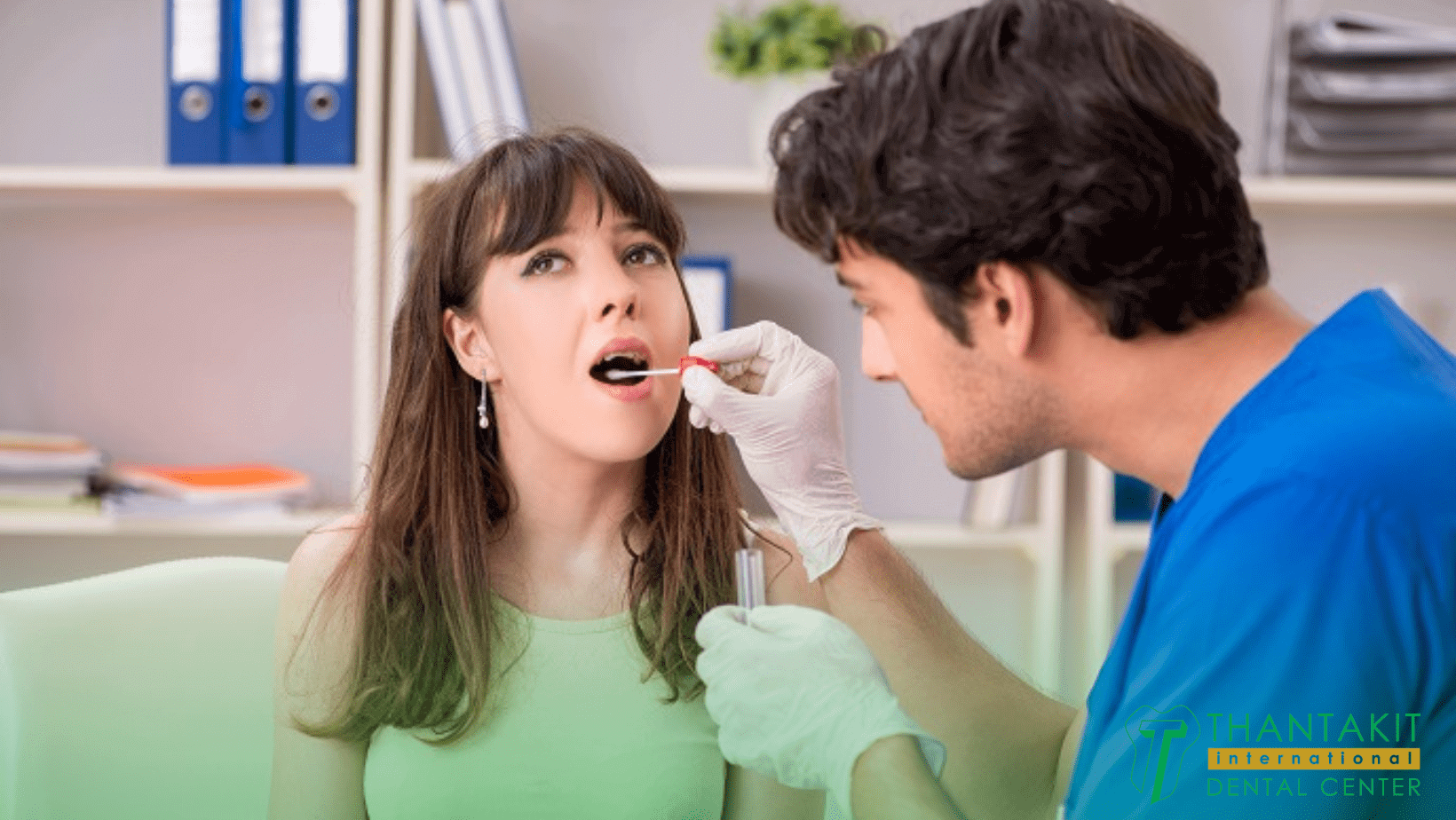
In a Nutshell
Who says you can’t maintain dental hygiene while on vacation? Your Thailand visit might even present the opportunity to affordably ensure oral health and dental aesthetics!
Thailand dental operations and procedures are “cheaper” there but not in a “low-grade” sort of way. Even when it comes to dental hygiene with a dental hygienist specialist or general practitioner, the country offers pound-for-pound the best dental healthcare on the planet.
You can even avail yourself of major operations like crown installation, dental implants, and wisdom teeth removal at a discount and with a 5-year warranty attached to it for good measure.
Thantakit International Dental Center is Thailand’s longest established dental center. Situated in Bangkok, our clinic is renowned across the world as a destination for world-class dentistry, with most of our patients flying to us from Australia.
Please contact us today and get a FREE dental consultation.
